Pakistan’s movement for independence in the first half of the 20th century was an important struggle at the world scale that succeeded in carving out a new country from British India in the Muslim-majority areas without any violence.
Several extra-ordinary individuals played their roles to bring a dream of a new state of Pakistan into reality in August 1947 under the leadership of Quaid-e-Azam Muhammad Ali Jinnah, the Father of the Nation.
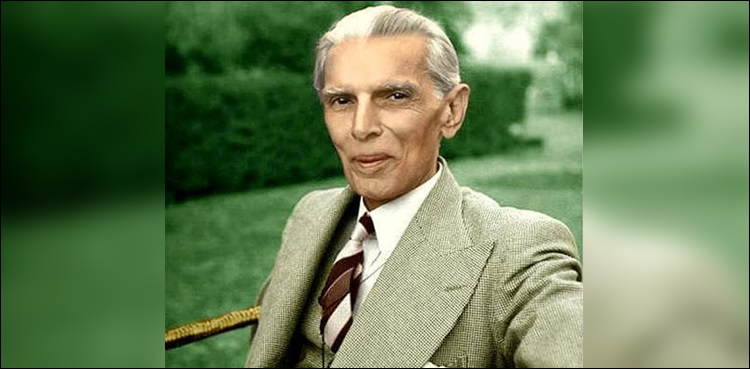
Muhammad Ali Jinnah
Muhammad Ali Jinnah born in Karachi on 25 December 1876, was a barrister who led the All-India Muslim League until emergence of Pakistan as a new country on the face of the world on 14 August 1947, and then as Pakistan’s first Governor-General until his death on September 11, 1948.
Jinnah on his return to India after education in London took an interest in national politics and rose to prominence.
In the early years of his political career, he advocated Hindu–Muslim unity and was termed as the ambassador of unity. He helped to shape the 1916 Lucknow Pact
between All-India Muslim League and the Congress.
Jinnah when in Congress, remained an influential voice and worked to bring the League and the Congress together. In 1916 he brought the two parties on one page to sign the Lucknow Pact, setting quotas for Muslim and Hindu representation in various provinces.
The pact was never fully implemented, yet its signing ushered the two parties in a period of political cooperation and collaboration.
He became a key leader in the All India Home Rule League, and proposed a fourteen-point constitutional reform plan to safeguard the political rights of
Muslims in British India.
He parted his way from the Congress in 1920. By 1940 Jinnah had come to believe that Muslims of the Indian subcontinent should have their own separate state. In that year, the Muslim League, led by Jinnah, passed the Lahore Resolution, demanding a separate state.
The Muslim League during the Second World War gained grassroot momentum in Muslims and in the elections held shortly after the war, it won most of the seats reserved for Muslims.
The Congress and the Muslim League could not reach to a power-sharing formula for the subcontinent to be united as a single state, leading all parties to
agree to the independence of a predominantly Hindu India, and a Muslim-majority state of Pakistan.
Jinnah worked to establish the government and policies of the new country as the first Governor-General of Pakistan.
He helped millions of Muslim migrants who had migrated from Indian territories to Pakistan after independence.
He died in September 1948, just over a year after Pakistan gained independence when the new country needed him most as a statesman and guiding light to move ahead on the path of a bright democratic future.
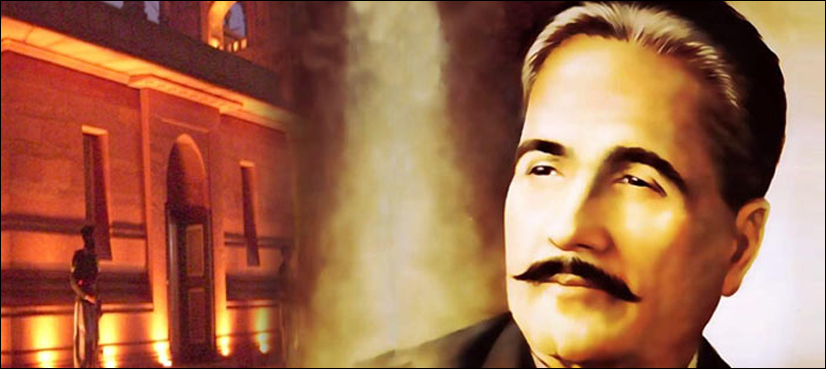
Allama Iqbal
Iqbal was a poet, philosopher and thinker. He has been called the “Thinker of Pakistan” for his vision of the country and ideological contribution to the new state that emerged after his death.
Iqbal’s poems, political contributions and academic and scholarly research were distinguished, which inspired the movement for Pakistan. He wrote poetry in both Urdu and Persian.
While studying law and philosophy in England, Iqbal joined the London chapter of the All-India Muslim League.
During the League’s December 1930 session, he delivered a speech, known as the Allahabad Address, in which he described the contours of a separate Muslim majority state in north-western parts of British India.
Iqbal received recognition in his home province Punjab after his return from England. When the All-India Muslim League was being organized on the provincial level, Iqbal was made one of three joint secretaries of the party. While dividing his time between law practice and poetry, Iqbal remained active in the Muslim League.
In November 1926, Iqbal contested election for a seat in the Punjab Legislative Assembly from the district of Lahore, and won the election.
He supported the constitutional proposals proposed by Muhammad Ali Jinnah to guarantee Muslim political rights.
Ideologically opposite to the Muslim leaders of Congress party, Iqbal was also discontented over factions in League and came to believe that only Jinnah was a political leader capable of preserving unity and fulfilling the League’s objectives of Muslim political empowerment.
Building a strong, personal rapport with Jinnah, Iqbal is said to be influenced Jinnah in convincing him to return from London to India to lead the Muslim League.
In a letter to Jinnah, he wrote, “I know you are a busy man, but I do hope you won’t mind my writing to you often, as you are the only Muslim in India today to whom the community has right to look up for safe guidance through the storm which is coming to North-West India and, perhaps, to the whole of India”.
Iqbal came with the idea of a separate Muslim-majority state in northwestern regions of India in 1930, his correspondence with Jinnah is termed by some historians as having been responsible for Jinnah’s owning the idea of Pakistan.
Iqbal worked constantly to encourage Muslim leaders and masses to support Jinnah and the League.
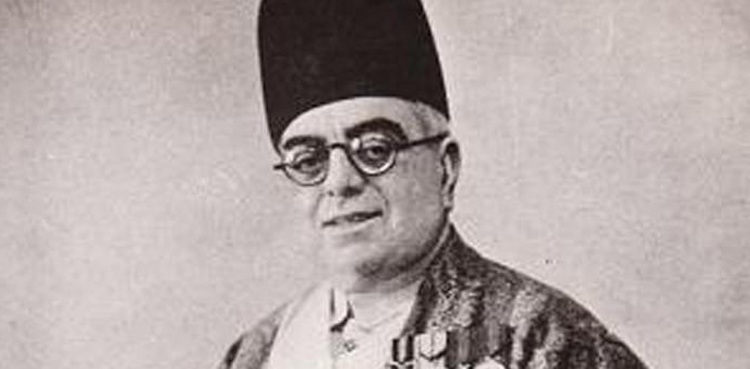
Sir Sultan Mohammad Shah Aga Khan
Sir Sultan Mohammad Shah, Aga Khan III was one of the founders and the first president of the All-India Muslim League (AIML), the party that guided the Muslims of the subcontinent to the cherished goal of a separate state.
Sir Aga Khan worked for the advancement of Muslims and the protection of Muslim rights in India. The Muslim League, until the late 1930s was not a large political party with popular support.
Aga Khan shared the belief that Muslims should first build up their social strength through advanced education before engaging in politics. He called on the British rulers of India to consider Muslims to be a separate nation within the country.
He remained president of Muslim League till 1912 and also remained a major influence on the party’s policies and agendas afterwards.
He was nominated to represent British India to the League of Nations in 1932 and served as President of the League of Nations in 1937–38.
Sir Sultan Mohammad Shah, at the age of seven, succeeded his father as Imam of the Isma’ili Muslims. He travelled in distant parts of the world to meet his followers, with the objective of either settling differences or advancing their welfare.
During the three Round Table Conferences in London from 1930–32, he played an important role to bring constitutional reforms in British India.
In 1934, he was made a member of the Privy Council and served as a member of the League of Nations (1934–37), becoming the President of the League of
Nations in 1937.
He was said to be influenced by the views of Sir Sayyid Ahmad Khan and was one of the backers of the Aligarh University. He can be deemed an Islamic modernist and an intellectual. He believed there to be no contradiction between
religion and modernity and urged Muslims to embrace modernity. He was intellectually open to Western philosophy and ideas and believed that engagement with them could lead to a revival and renaissance within Islamic thought.
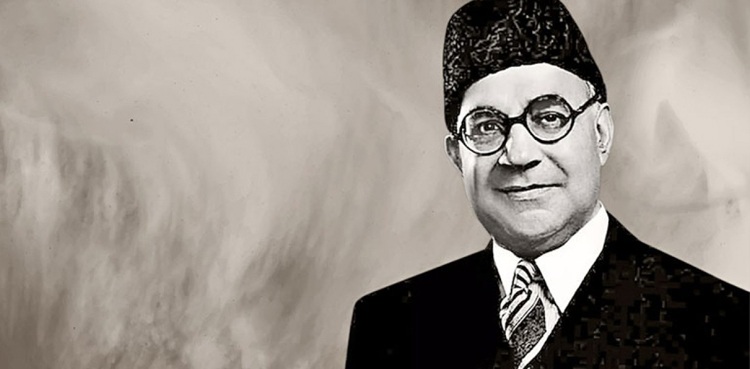
Liaquat Ali Khan
Liaquat Ali Khan became the first Prime Minister of Pakistan and also held cabinet portfolios of foreign affairs, defence and the frontier regions from 1947 until his assassination on October 16, in 1951.
Liaquat Ali Khan was born in Karnal, in Punjab and was educated at the Aligarh Muslim University, and later at Oxford University. He returned to India in 1923 from London.
He cherished parliamentary democracy and joined the Muslim League advocating redressal of injustices and mis-treatment meted out to Indian Muslims by the British colonial rulers.
He assisted Jinnah in campaigning for the creation of a separate state for Muslims in the subcontinent.
Khan embarked on his parliamentary career, representing the United Provinces (UP) at the Legislative Council in 1926. He was elected to the provisional legislative council in the elections from the rural Muslim constituency of Muzzaffarnagar.
He remained the elected member of the UP Legislative Council until 1940, when he was elected to the Central Legislative Assembly.
In April 1936, in a Muslim League session, Liaquat Ali Khan named the honorary general secretary of the party. He held the office till the establishment of Pakistan in 1947.
In 1940, Khan was made deputy leader of the Muslim League parliamentary party.
The Pakistan Resolution was adopted in 1940 at the Lahore session of the Muslim League. The same year elections were held for the central legislative assembly in which Liaquat Ali Khan won from the Barielly constituency without contest.
In 1945–46 elections Liaquat Ali Khan won the Central Legislature election from the Meerut Constituency in the UP. The Muslim League won most of the seats reserved for Muslims.
He assisted Jinnah in negotiations with the members of the Cabinet Mission and the leaders of the Congress during the final phase of the freedom movement and it was decided that an interim government would be formed comprising of members of the Congress, the Muslim League and minority leaders.
Muslim League sent five of its nominees led by Liaquat Ali Khan, for representation in the interim government. He was given the portfolio of finance in the interim administration.
The other four men nominated by the League were Ibrahim Ismail Chundrigar, Ghazanfar Ali Khan, Abdur Rab Nishtar, and Jogendra Nath Mandal.
The British government and the Indian National Congress had both accepted the idea of Pakistan and on 14 August 1947, Pakistan became a reality.
His influence grew further as prime minister of the new country after Jinnah’s death in September 1948.
Liaquat Ali Khan is also said to be the major influence behind the promulgation of the Objectives Resolution.
In October 1951, at a political rally in Rawalpindi, he was assassinated by a gunman.
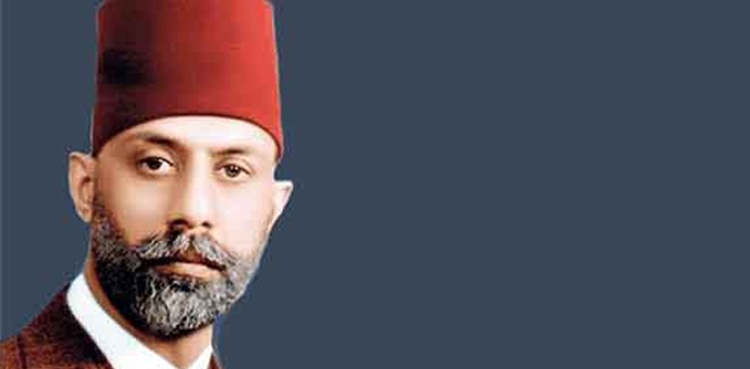
Chaudhry Rahmat Ali
Chaudhry Rahmat Ali was one of the earliest proponents of the creation of the state of Pakistan.
He is credited with suggesting the name “Pakistan” for a separate Muslim homeland in South Asia.
Rahmat Ali introduced the name when he was a law student at the University of Cambridge in 1933, in the form of a pamphlet “Now or Never; Are We to Live or Perish Forever?”.
The pamphlet was addressed to the British and Indian delegates to the Third Round Table Conference in London.
The idea, however, did not find support with the delegates or any of the politicians for around a decade. By 1940, the Muslim politics in the subcontinent came around to accept the idea, leading to the Lahore Resolution of the All-India Muslim League, which was immediately dubbed the “Pakistan Resolution”.
Rehmat Ali was born in November 1897 in the town of Balachaur in the Hoshiarpur District of Punjab. His relatives migrated to Lyallpur (Faisalabad). After graduating from Islamia College Lahore in 1918, he taught at Aitchison College Lahore before joining the Punjab University to study law.
In 1930 he moved to England to join Emmanuel College Cambridge. He obtained a BA degree in 1933 and MA in 1940 from the University of Cambridge.
He published his historic pamphlet, “Now or Never”, in 1933, coining the word Pakistan for the first time.
Rahmat Ali finished education in England, obtaining MA and LLB with honours from the universities of Cambridge and Dublin.
In 1946, he founded the Pakistan National Movement in England. Until 1947, he continued publishing various booklets about his vision for South Asia.
In a pamphlet he said, “Our religion and culture, our history and tradition, our social code and economic system, our laws of inheritance, succession and marriage are fundamentally different from those of most peoples living in the rest of India. The ideals which move our people to make the highest sacrifices
are essentially different from those which inspire the Hindus to do the same. These differences are not confined to broad, basic principles. They extend to the minutest details of our lives. We do not inter-dine, we do not inter-marry. Our national customs and calendars, even our diet and dress are different.”
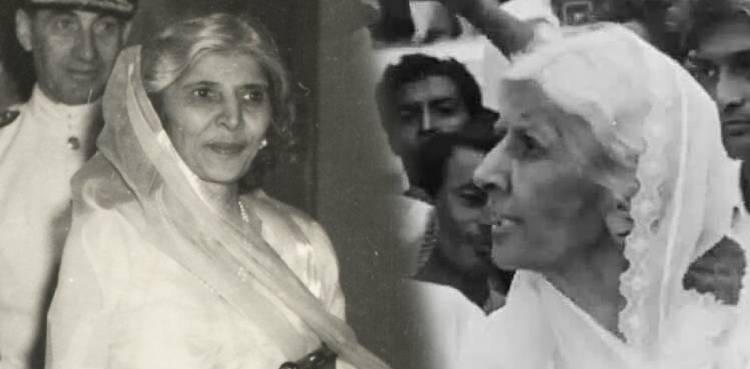
Fatima Jinnah
Fatima Jinnah, popularly called Madar-e-Millat (mother of the nation) was the youngest sister of Quaid-e-Azam Muhammad Ali Jinnah.
She was close to Muhammad Ali Jinnah who became her guardian after the death of their father in 1901.
She is remembered for her passionate support for civil rights and her devoted struggle in the movement for Pakistan.
Mohammad Ali Jinnah was deeply affected after his wife’s death in 1929, so Fatima Jinnah worked side by side with him and organized the women of the sub-continent on a single platform which made the struggle for gaining a separate state of Muslims easier.
After obtaining a dental degree from University of Calcutta in 1923, she became a close associate and an adviser to her brother, Muhammad Ali Jinnah.
She remained the closest aide to Jinnah and played an important role in the Pakistan Movement, supporting the two-nation theory while opposing the British
colonial rule.
After the independence of Pakistan, she co-founded the Pakistan Women’s Association which played a pivotal role in rehabilitation of the women migrants
from India in the new-born country.
She returned to the political forefront to contest the 1964 presidential election at the advanced age of 71 against Ayub Khan.
She was backed by a coalition of opposition political parties. Despite her defeat amid allegations of rigging, she won two of Pakistan’s largest cities, Karachi and Dhaka.
She died in Karachi on July 09, 1967, and was laid to rest next to her brother at Mazar-e-Quaid.
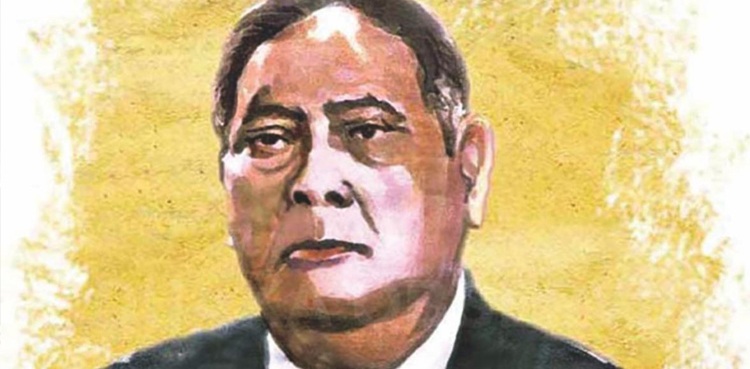
Fazlul Huq
Abul Kasem Fazlul Huq, popularly known as Sher-e-Bengal was a key figure in the Pakistan Movement, widely remembered for presenting Pakistan Resolution.
He was first elected to the Bengal Legislative Council from Dhaka in 1913 and served on the council for 21 years. He remained a member of the Central Legislative Assembly for 2 years, between 1934 and 1936. He remained an elected member of the Bengal Legislative Assembly for 10 years from 1937 to 1947, where he also held the office of Prime Minister.
He remained a member of the Constituent Assembly of Pakistan, where he held the office of Home Minister for 1 year, in the 1950s.
He boycotted titles and knighthood awarded by the British government. He was notable for his English oratory during speeches to the Bengal legislature.
Fazlul Huq courted the votes of the Bengali middle classes and rural communities. He pushed for land reforms and curbing the influence of landowners.
In 1940, Huq had one of his most notable political achievements when he presented the Lahore Resolution at a meeting of All India Muslim League.
In Pakistan, Huq worked for five years as East Pakistan’s attorney general. He was elected as chief minister, served as a federal minister and was a provincial governor in the 50s decade.
Fazlul Huq became secretary of the Bengal Provincial Muslim League in 1913. In 1929, he founded the All Bengal Tenants Association, which evolved into a
political platform.
He held important political offices, including education minister of Bengal (1924), first Muslim Mayor of Calcutta (1935), Prime Minister of Bengal (1937-1943), Advocate General of East Pakistan (1947-1952), Home Minister of Pakistan (1955-1956) and Governor of East Pakistan (1956-1958).
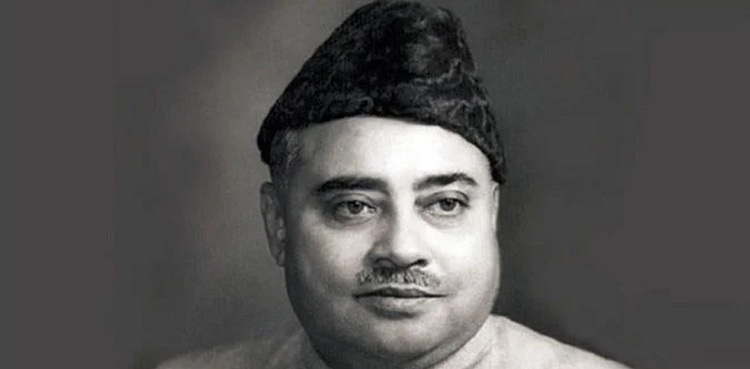
Born into a Nawab family in Bengal in 1894, he was educated at the Aligarh Muslim University before pursuing his education at the Cambridge University in
UK to secure his graduation. He started his political career in Muslim League on his return, where he primarily focused on education in Bengal before leading the cause for separate Muslim homeland of Pakistan, under the leadership of Muhammad Ali Jinnah.
He served as the prime minister of Bengal from 1943 to 1945 and later became the chief minister in 1947 until 1948, when he ascended as governor-general after the death of Father of the Nation Muhammad Ali Jinnah.
He took over the control of the government as prime minister of Pakistan in 1951 after the assassination of Liaquat Ali Khan and relinquished the post of Governor-General to Malik Ghulam Mohammad.
He struggled to run the government effectively as prime minister on the internal and foreign fronts, however, held the top government office for only two years.
He strived to maintain law and order in the country on the home front, and ordered the military to impose martial law in Lahore due to religious riots.
He also faced a language movement in his native Bengal that eventually led to the shutdown of the government in East Pakistan.
He was forced to step down in favor of a diplomat Mohammad Ali Bogra by Governor-General Malik Ghulam Mohammad. After retiring from national politics, he suffered illness and died in 1964.
He has been buried at a mausoleum in Dhaka.
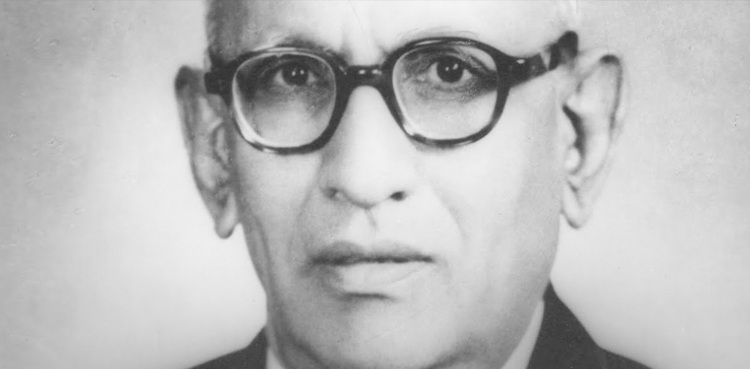
Ibrahim Ismail Chundrigar
Ibrahim Ismail Chundrigar, best known as I. I. Chundrigar, was the sixth Prime Minister of Pakistan, appointed on 17 October 1957 until being removed due to the vote of no confidence against him on 11 December 1957.
Trained in the constitutional law from Bombay, Chundrigar’s tenure is the second shortest in the parliamentary history of Pakistan just after that of
Nurul Amin who served as prime minister for 13 days. Chundrigar served only for just 55 days.
He was born in Godhra, Gujarat in British India on September 15, 1897. He was initially schooled in Ahmedabad where he finished his matriculation and moved to Bombay for his higher studies.
He went to attend Bombay University where he secured his graduation with the BA degree in philosophy, and later the LLB from the same university in 1929.
Chundrigar began practising civil law and moved to practice the law at the Bombay High Court in 1937. During this period, he acquainted with Muhammad Ali Jinnah, sharing similar political views and work ethics.
In 1935, he represented the Muslim League to give a response to the Government of India Act 1935 introduced by the British government.
In 1936, he joined the Muslim League and won elections in 1937 as a member of the Bombay Legislative Assembly. He took over the Muslim League’s provincial presidency in Bombay. In 1946, he was named and appointed as Commerce Minister under the administrations of Viceroys of India, Lord Wavell and Lord Mountbatten.
After the partition of India, Chundrigar held the office of the commerce minister in the administration of Prime Minister Liaquat Ali Khan. He later appointed as the Pakistan ambassador to Afghanistan for a brief period. In 1950, he was appointed Governor of the NWFP (Khyber-Pakhtunkhwa), which he tenured until 1951. In 1951 he nominated the Governor of Punjab but was removed amid differences developed in 1953 with Governor-General Ghulam Muhammad when he enforced martial law at the instructions of Prime Minister Khwaja Nazimuddin to control violent religious riots that occurred in Lahore.
Later, he was appointed as Pakistan’s Ambassador to Turkey. In 1955, he was called from Turkey to join a coalition government in the Centre. He was appointed Minister of Law and Justice.
After the resignation of Prime Minister Husseyn Shaheed Suhrawardy in 1956, Chudrigar was nominated as the Prime Minister and was supported by Awami
League, Krishak Sramik Party, Nizem-i-Islam Party, and the Republican Party.
On 18 October 1957, he took the oath of office. At the first session of the National Assembly, I.I. Chundrigar presented his plans to reform the electoral college, which was met with opposition even by his Cabinet ministers from the Republican Party and the Awami League. A successful vote of no-confidence in the National Assembly ended his term and he resigned from the PM office.
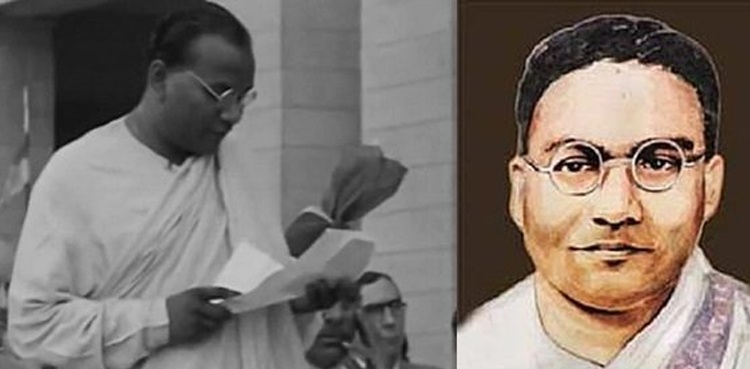
Jogendranath Mandal
Jogendranath Mandal was one of the founding fathers of Pakistan, and he served as the country’s first minister of law and labour, and also was the second minister of commonwealth and Kashmir affairs.
As a leader of Dalits, Jogendranath had made common cause with the Muslim League in its demand for a separate homeland, hoping that Dalits would be benefited from it and joined the first cabinet in Pakistan.
He was one of the 96 members of the Constituent Assembly of Pakistan. He agreed to serve as the new state’s first Minister for Law and Labour, becoming the highest-ranking Hindu member of the government of the country.









